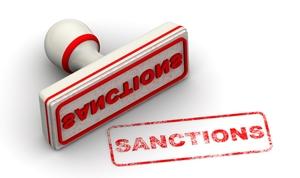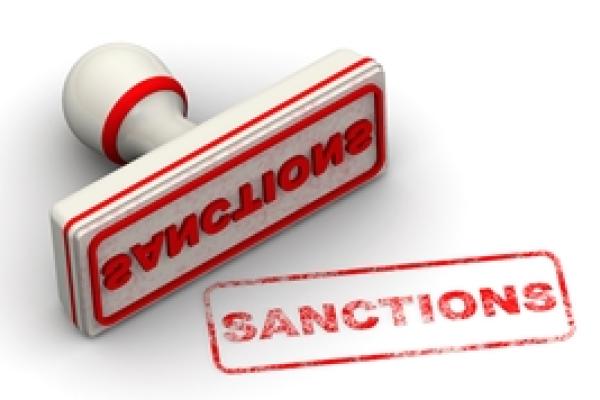
Steamship Mutual
Published: November 01, 2015

Progress continues to be made in implementing the various parties’ obligations pursuant to the Joint Comprehensive Plan of Action (JCPOA) with a view to the lifting of the majority of EU sanctions and US extra-territorial sanctions at some point in 2016.
Any businesses which are considering future opportunities in Iran need to be aware of the scope and timeframe of any sanctions relief, so that appropriate procedures can be adopted. It is therefore helpful and timely that the EU and US have recently issued legislation and waivers which give additional clarity about the precise extent of sanctions relief which will follow once Iran complies with its JCPOA commitments.
In parallel with these legislative measures in the EU and the US, the JCPOA has now been approved by Iran’s Supreme Leader Ayatollah Ali Khamenei, with the result that Iran is now expected to begin performing its obligations under the JCPOA.
Introduction
On 18 October 2015 the EU and the US issued legislative documents, as the first stage towards implementing their respective sanctions relief commitments pursuant to the JCPOA.
The EU measures comprise two amending Regulations and an authorising Decision. On the US side, two documents were published - a set of contingent waivers and a memorandum from the President to the Secretaries of State, the Treasury, Commerce, and Energy.
Importantly, these changes do not have any immediate effect on the existing sanctions and will only come into effect on ‘Implementation Day’ namely once Iran has implemented its key nuclear-related commitments described in the JCPOA and this has been verified by the International Atomic Energy Agency (IAEA). The exact date of ‘Implementation Day’ is not yet known but is expected to occur sometime in the second half of 2016.
EU legislation
On 18 October 2015 the EU published a Decision[1] and two Regulations[2].
These documents set out in detail the EU Iran sanctions landscape which will apply after ‘Implementation Day’. In particular, on that date most of the sanctions in the current EU Decision[3] will be suspended and most of the sanctions in the current EU Regulation[4] will be terminated or modified.
The asset freeze measures will stay in place, but the list of asset freeze targets will be substantially reduced. Only 29 individuals and 94 entities will remain on the list, in line with the EU’s de-listing obligation under the JCPOA.
The position should be contrasted with the current EU Iran (Nuclear Proliferation) list, which contained 93 individuals and 467 entities on 23 October 2015, including the likes of NITC, IRISL and IOTC, all of which will be de-listed on Implementation Day.
The remaining asset freeze targets, including Tidewater Middle East, are due to be de-listed by the EU on Transition Day in 2023. It is worth highlighting that, notwithstanding the de-listing of some Iranian banks on Implementation Day, EU financial institutions will still be prohibited from supplying SWIFT services to Bank Saderat, Ansar Bank and Mehr Bank until Transition Day. In addition, notwithstanding the EU de-listing, certain entities will remain on the US Specially Designated Nationals (SDN) list at the relevant times, such that ongoing vigilance and due diligence will be required.
EU businesses will need to comply with the continuing asset freeze and the other restrictions which remain in place in the EU, as set out below. They will also need to comply with certain continuing US extra-territorial sanctions. Provided they do so, EU businesses will once again be able to engage in the following activities once Iran’s performance of its obligations under the JCPOA has been certified by the IAEA:
- Transactions relating to the supply to Iran of key equipment and technologies for the Iranian oil and gas industries.
- Transactions relating to the supply to Iran of key naval equipment or technology.
- Transactions relating to the purchase, import or transport of crude oil, petroleum products, petrochemical products and natural gas of Iranian origin.
- Transactions relating to the supply to Iran or purchase from Iran of gold, precious metals and diamonds.
- Transactions relating to the supply to Iran of Iranian banknotes and minted coinage.
- Investment in the Iranian oil, gas and petrochemical industry.
- Transfers of funds to and from Iranian persons, entities or bodies without the need for prior notification or authorisation.
- Transactions with Iranian banks.
- Purchase or sale of Iranian public or public-guaranteed bonds.
- Provision of insurance and re-insurance to Iran, its government and public bodies, and Iranian companies.
- Provision of services to Iranian flagged vessels.
- Provisions of vessels for the transportation and storage of Iranian oil and petrochemical products.
The following restrictions will remain in place:
- A prior authorisation will be required for the supply of software designed specifically for use in Iran’s nuclear or military industries – restrictions in respect of software designed for use in gas, oil, navy, aircraft, financial and construction industries are lifted.
- A prior authorisation will be required for the supply to Iran of graphite, raw and semi-finished metals. The authorisation will not be granted if there are reasonable grounds to determine that the material will be used in connection with reprocessing or enrichment related, heavy water related, or other nuclear related activities inconsistent with the JCPOA, Iran’s military or ballistic missile programme or for the direct or indirect benefit of the Iranian Revolutionary Guard Corps.
- Restrictions on the transportation of goods covered by the EU Common Military list, Missile Technology Control Regime List, the Nuclear Suppliers Group List, or other items that could contribute to reprocessing or enrichment-related or heavy water-related activities and prohibited supplies of graphite, raw and semi-finished metals.
For various nuclear-related materials, and ancillary services such as financing, transportation and brokering, the regulations create three different regimes which will apply depending on how a particular item is classified. If the item falls under the Missile Technology Control Regime List, supply and various related services will be prohibited. If the item falls under the Nuclear Suppliers Group List an authorisation will be required. If the item falls under “other items that could contribute to reprocessing- or enrichment-related or heavy water-related or other activities inconsistent with the JCPOA” list an authorisation will be required on a case-by-case basis.
The Decision and the Regulations also clarify, at least to some extent, the EU’s position in respect of “grandfathering”, namely whether there will be an exemption for pre-existing contracts if sanctions are re-imposed due to Iran’s breach of its commitments under the JCPOA. It does now appear that there will be some exemptions for such contracts: all three documents note that in case of the re-introduction of the EU sanctions, the EU will provide “adequate protection” for the execution of contracts concluded in accordance with the JCPOA while sanctions relief was in force.
US waivers
On 18 October 2015 the Secretary of State issued a number of contingent waivers described below. These contingent waivers are expected to be further supplemented prior to Implementation Day by notices confirming the termination of a number of executive orders, issue of OFAC’s general licences for non-US persons owned or controlled by US persons and a number of SDN removals.
As expected, the contingent waivers deal mostly with the so-called US secondary sanctions – the sanctions applicable to non-US persons – and only to a limited extent with the primary sanctions.
In terms of the impact of the JCPOA on US primary sanctions, from Implementation Day US persons who obtain a licence from OFAC will be allowed to sell commercial passenger aircraft and spare parts and components for such aircraft, along with associated services to Iran. Provision by US persons of related underwriting services, insurance or reinsurance will also be allowed.
As a result of the 18 October 2015 contingent waivers, the penalties for breaching the following secondary sanctions applicable to non-US persons will be waived for activities which take place after Implementation Day:
- Restrictions on dealing with the energy, including natural gas, port, shipping, or shipbuilding sectors of Iran, including the National Iranian Oil Company, the National Iranian Tanker Company, and the Islamic Republic of Iran Shipping Lines.
- Restrictions on the direct or indirect sale, supply or transfer to or from Iran of precious metals, graphite, raw or semi-finished metals, save for graphite, raw or semi-finished metals which will be used in connection with the military or ballistic missile program of Iran or which have a potential nuclear end-use, unless approval has been received through the procurement channel set out in section 6 of Annex IV of the JCPOA.
- Restrictions on the provision of underwriting services, insurance and re-insurance, save where the transaction involves SDNs, or persons designated in connection with Iran’s support for terrorism and Iran’s proliferation of weapons of mass destruction.
- Restrictions on financial institutions which transact with, or facilitate a significant financial transaction on behalf of, the Government of Iran, certain Iranian financial institutions and any entity owned or controlled by them.
- Restrictions on the purchase of Iranian sovereign debt or the debt of any Iranian state controlled entity.
The presidential memorandum requires the Secretary of State, the Secretary of the Treasury, the Secretary of Commerce and the Secretary of Energy to “take all appropriate additional measures to ensure the prompt and effective implementation of the US commitments set forth in the JCPOA”.
Recommendation
Those businesses which are considering opportunities in Iran should carefully review the latest legislative measures from the EU and US to determine whether their intended activities will be permitted after Implementation Day.
They should consider carefully what ongoing due diligence will be required after Implementation Day, and also keep a close eye on developments, in order to be sure of when sanctions relief will commence.
We are grateful to Daniel Martin, Anthony Woolich, and Elena Kumashova of Holman Fenwick Willan LLP, for this article.
[1] Council Decision (CFSP) 2015/1863 of 18 October 2015 amending Decision 2010/413/CFSP concerning restrictive measures against Iran.
[2] Council Regulation (EU) 2015/1861 of 18 October 2015 amending Regulation (EU) No. 267/2012 concerning restrictive measures against Iran; and Council Implementing Regulation (EU) 2015/1862 of 18 October 2015 implementing Regulation (EU) No. 267/2012 concerning restrictive measures against Iran.
[3] Decision 2010/413/CFSP as amended.
[4] Regulation (EU) No. 267/2012 as amended.


